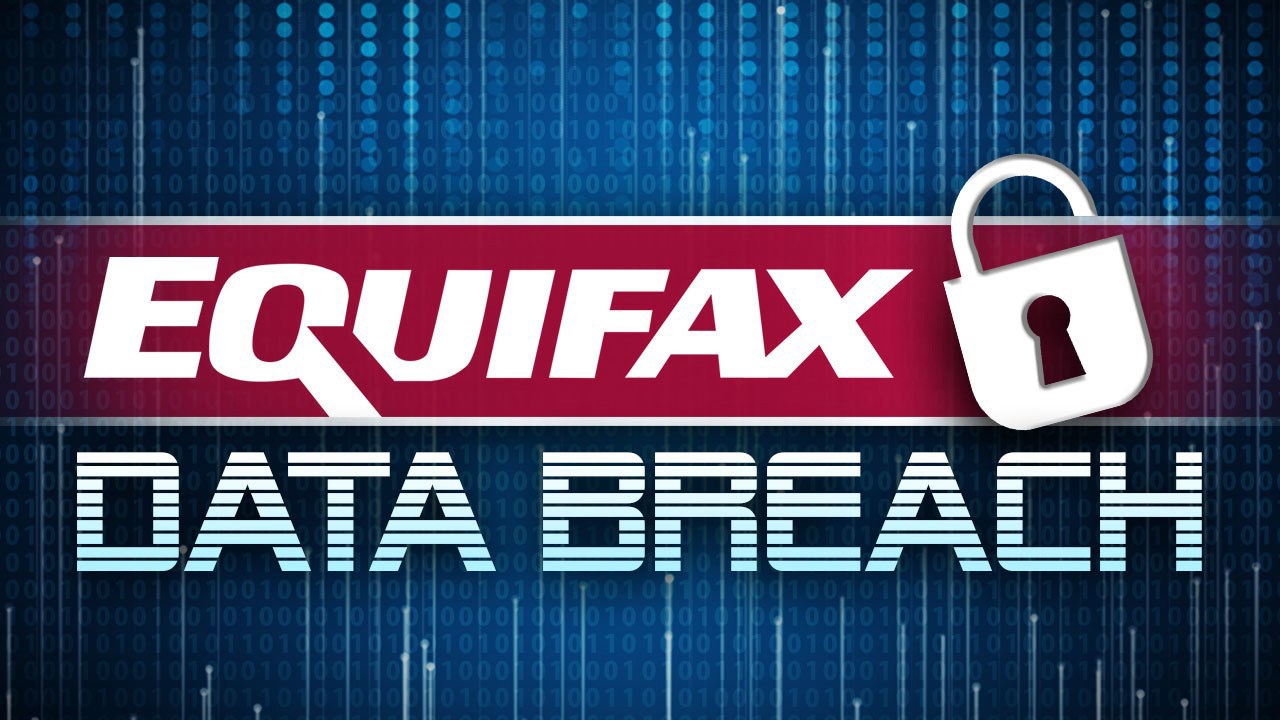What to do about the Equifax data breach
While many of us were dealing with hurricane Irma, Equifax had its own disaster affecting 143 million Americans. Equifax is one of four credit reporting agencies which collect and report information about your bill payment history, current debt, known addresses and other financial information. Apparently, hackers accessed people’s names, Social Security numbers, birth dates, addresses and, in some instances, driver’s license numbers. Hackers also stole credit card numbers for 209,000 people.
In light of the Equifax breach, we recommend you consider the following:
- As always, be wary of scams. Be careful if you receive an email from Equifax which asks you to click on a link. It is inevitable that fraudsters will be sending emails pretending to be Equifax. A best practice is to ignore requests to click a link and instead find the company’s website independently and use the link you find there.
- To find out if your information was compromised, go to https://www.equifaxsecurity2017.com/ You will be prompted to enter your last name and the last six digits of your SSN.
- After you learn if your personal information was exposed, you will receive an offer from Equifax to sign up for one year of complimentary identity theft protection and credit monitoring. This is not nearly as much protection as a credit freeze but if someone tries to take out a credit card or loan in your name, you’ll find out about it immediately and may be able to manage the issue. There were media reports that if you accepted Equifax’s monitoring offer you would give up your right to sue Equifax, but those reports appear to be false. Nonetheless, if that is a concern, there are plenty of other monitoring services to choose from for a fee.
Lock down your credit with a freeze
As we have mentioned in the past, security experts consistently say the strongest form of protection against identity theft is a credit freeze. If you have frozen your credit, it is unlikely this incident or possible future breaches will be a problem with credit-related identity theft even if your information was compromised. If you haven’t put on a credit freeze, consider doing so.
“…security experts consistently say the strongest form of protection against identity theft is a credit freeze.”
All four credit bureaus (Equifax, Experian, Transunion, and Innovis) give you the ability to freeze your credit. This means no one can access your credit report, including you, until you lift the freeze. You are safer from identity theft because most lenders will not offer a loan to anyone if they can’t check their credit first. An identity thief pretending to be you will hit a virtual concrete wall and move on to easier prey.

To place a freeze, contact each of the nationwide credit reporting companies below:
- Equifax— 1-800-349-9960
- Experian— 1‑888‑397‑3742
- TransUnion— 1-888-909-8872
- Innovis— 1-800-540-2505
You will need to unfreeze your credit when you apply for a new credit card, loan, mortgage, sign up for a new cell phone plan, a new utility company or need to have another third party (potential landlord, employer, insurer) access your credit report. According to the FTC, a credit reporting company must lift a freeze no later than three business days after getting your request. A freeze can be annoying if you forget to unfreeze your credit before applying. But as long as you remember to thaw your credit three days before it is needed, processing will not be impeded. That annoyance is minimal compared to correcting a bogus loan taken out by someone pretending to be you.
Slow down identity thieves with a security fraud alert
While freezes are the most effective means of deterring identity thieves, some hesitate to freeze their credit because they fear losing or forgetting their PIN and not being able to unfreeze their credit without a substantial amount of hassle. (Don’t forget your PIN!)
Another option is to file a “security fraud alert.” When you file an alert with one bureau, they must report it to the other bureaus on your behalf. With an alert, a thief can still apply for credit in your name and the lender will get a credit report but these alerts notify a lender or merchant to take “reasonable steps” to verify your identity before extending credit. The typical annoyance with alerts is that extra step of contacting you directly, usually by phone, or requesting additional documentation which can slow down an approval process. Fraud alerts can be temporary (90 days) or extended (7 years). Alerts are free and do not affect your credit score.
Credit is just one aspect of identity theft
Credit freezes and fraud alerts protect you from having a thief take out bogus loans in your name but they do not protect you from other forms of fraud like tax related scams. You must continue to remain diligent and take steps to enhance your cybersecurity.
Don’t be an easy target. We monitor your investment accounts closely but you should also check all your bank, credit, and other accounts periodically. Review you credit reports regularly. By law you can review them for free annually at annualcreditreport.com Secure your systems and devices. Refer to our most recent briefing, Cybersecurity: What You Need to Know, for tips.
Tax Relief for Irma-affected areas

In addition, the IRS will work with any taxpayer who lives outside the disaster area but whose records (necessary to meet a deadline occurring during the postponement period) are in an affected area. Taxpayers qualifying for relief who live outside the disaster area need to contact the IRS at 866-562-5227. This also includes workers assisting the relief activities who are affiliated with a recognized government or philanthropic organization.
According to the IRS release, affected individuals and businesses will have until Jan. 31, 2018, to file returns and pay any taxes that were originally due during this period.
“…affected individuals and businesses will have until Jan. 31, 2018, to file returns and pay any taxes that were originally due during this period.”
This includes the Sept. 15, 2017 and Jan. 16, 2018 deadlines for making quarterly estimated tax payments. For individual tax filers, it also includes 2016 income tax returns that received a tax-filing extension until Oct. 16, 2017. The IRS noted, however, that because tax payments related to these 2016 returns were originally due on April 18, 2017, those payments are not eligible for this relief.
Few taxpayers will be eligible but it is notable that individuals and businesses who suffered Irma-related damage to property may be able to claim losses on either their 2017 return or the return for the prior year (2016). See the IRS briefing on what it takes to qualify to claim a loss and Publication 547 for even more details. The biggest hurdle to overcome in claiming hurricane losses is that only uninsured or unreimbursed losses that exceed 10% of your Adjusted Gross Income are deductible.

